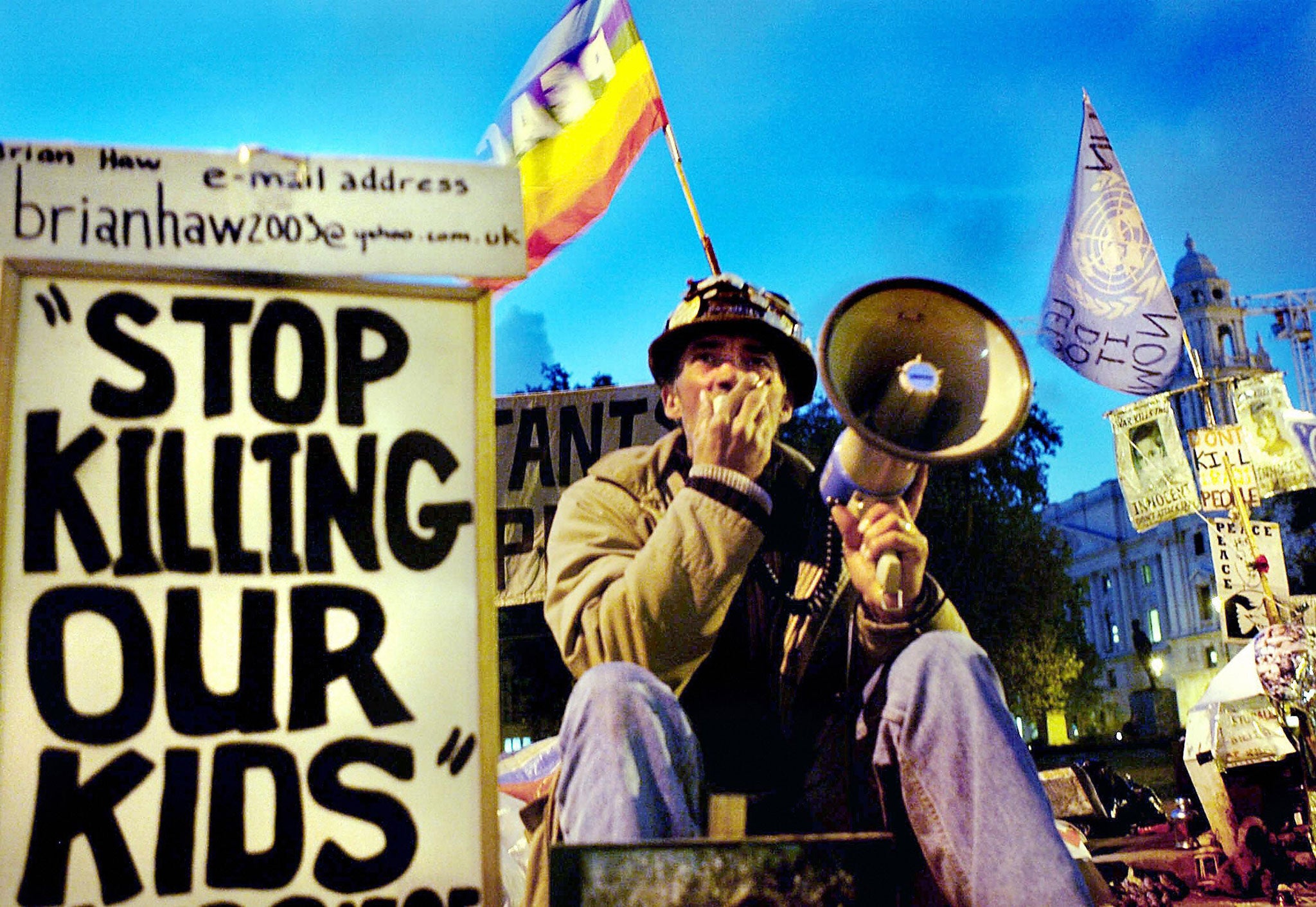Brian Haw: A statue would be a fitting tribute to a man of peace
This notorious protester deserves a permanent presence in Parliament Square


Your support helps us to tell the story
From reproductive rights to climate change to Big Tech, The Independent is on the ground when the story is developing. Whether it's investigating the financials of Elon Musk's pro-Trump PAC or producing our latest documentary, 'The A Word', which shines a light on the American women fighting for reproductive rights, we know how important it is to parse out the facts from the messaging.
At such a critical moment in US history, we need reporters on the ground. Your donation allows us to keep sending journalists to speak to both sides of the story.
The Independent is trusted by Americans across the entire political spectrum. And unlike many other quality news outlets, we choose not to lock Americans out of our reporting and analysis with paywalls. We believe quality journalism should be available to everyone, paid for by those who can afford it.
Your support makes all the difference.Even though it felt like I knew him, I encountered Brian Haw only twice. On the first occasion, the celebrated peace protester had been pictured leaving the Royal Courts of Justice wearing a T-shirt on which he'd had printed a front page of The Independent (of which I was editor at the time) which proclaimed an anti-Iraq War message, and that night I stopped at Parliament Square, where he had set up camp in 2001, to have a supportive word with him, and to thank him for the publicity. The other time was at a debate about Iraq, sponsored by the paper. It was held in an august debating chamber in Westminster before a packed and highly engaged audience, and passions – on both sides – were high.
Brian was there in the audience, wearing his trademark beanie hat festooned with badges and I thought his presence might give the evening a combustible quality. And so, all too predictably, it proved. Whenever he took exception to an assertion from the platform, he interjected loudly, and refused to desist. This created quite a rumpus and he was, sad to report, escorted from the building.
Brian Haw may have been a royal pain in the a*** (certainly, Westminster City Council, which spent countless hours through the courts trying to remove him and his makeshift peace camp from the pavement opposite the Houses of Parliament, will have thought so) but you couldn't help but admire his cussed dedication to the cause. For the best part of a decade, he kept up his vigil, using a megaphone to berate the government and surviving only on the kindness of supporters.
Tony Blair once lauded him as a symbol of free speech (he may have changed his mind as Brian kept up his barrage of anti-Blair sentiment) and in 2006, the Channel 4 Politics Awards named him the Most Inspiring Political Figure of the Year. Brian died in June 2011, having suffered from cancer, and when I drive round Parliament Square, I think of him, and I recall a very different political landscape.
Clearly, we do not have quite such divisive issues as the Iraq War these days – we are in a time of coalition government, after all – but Brian represented an engagement in politics that seems to be diminishing. I am grateful to Stephen Fry, who, in a tweet the other day, brought Brian back to mind. Fry was drumming up support for the campaign to erect a statue of Brian in Parliament Square (statueforbrianhaw.wordpress.com), and, in fewer than 140 characters, he articulated the reason why we should get behind this movement. "I think if this was completed and put in place," wrote Fry, "it'd give parliamentary democracy the credit it's been lacking." And that's the point. In the aftermath of the expenses scandal, trust in politicians has tumbled and faith in the political process is low.
Yet the Olympics showed that we are a confident nation, dynamic, polyglot, highly individualistic. Brian Haw brought those two strands together: a complete one-off who believed that politics mattered, and fought to effect change. It would be fitting for him to share Parliament Square with Churchill.
Join our commenting forum
Join thought-provoking conversations, follow other Independent readers and see their replies
Comments